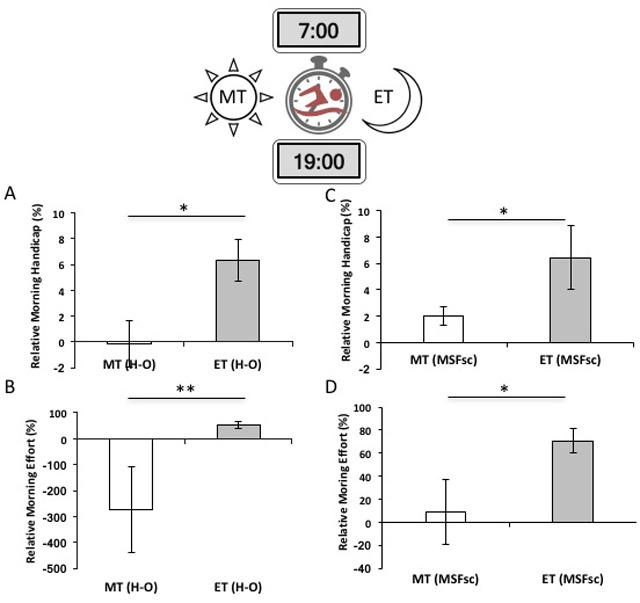Figure 1.

Relative morning handicap representing the average per-individual time-of-day effects on athletic performance and effort in self-reported circadian chronotypes (±SE). A & B) Morning handicap on performance is measured as the average per-individual time trial score ((AM–PM)/PM). Individual trial time (in seconds) differences (AM–PM) are normalized to evening times; values shown represent relative percent differences in performance. A) Evening-types, as measured by diurnal preference (HO-MEQ), have a significantly greater morning handicap than morning-types, swimming 6% slower in morning (07h00) than evening (19h00) 200-meter timed-trials (t = 2.70, df = 12, p = 0.017). B) Morning handicap on performance in chronotypes (MSFsc). Differences between ET and MT are significant (t = 2.45, df = 11, p = 0.034). C & D) Time-of-day effects on physiological effort measured by salivary α-amylase levels. Data are reported as average difference in α-amylase concentration between the morning and evening trials (relative to individual- and time-specific baselines; ±SE). C) For circadian phenotypes measured by diurnal preference (HO-MEQ), both MT and ET participants exert more effort at off-peak times and there is a significant relative percent difference in diurnal effort between MT and ET (t = 2.64, df = 10, p = 0.014). D) For chronotypes (MSFsc), only evening-types exert more effort at their non-peak morning trials and differences between MT and ET are marginally significant (t = 2.64, df = 10, p = 0.05).
